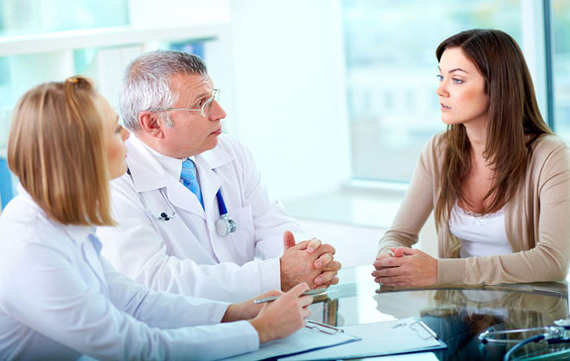
I am a huge proponent of finding the right medical professionals to help us to live a healthy life and to assist us when and if any medical problems arise. I suppose that I base my expectations on the doctors who accompanied me on my two journeys with breast cancer and reconstruction and parathyroid/thyroid surgeries and subsequent treatment. It wasn't always an easy road and I did find it necessary to replace certain doctors to whom I was referred along the way. I am very grateful that I did. My changes were done for two reasons: One, I did not have confidence in the treatment course that was being offered and two, I did not receive the appropriate respect that I felt that I deserved.
I am not hard to please and do respect the opinions of the doctors who have studied to become the experts in their fields. But I don't feel as though treatment should be based on statistics and I don't believe that my desire to discuss options should be waved away by a doctor who "knows it all." As a result, I engaged in some serious research and am so glad that I did because of the successful outcomes that I have had. When a patient has trust in and interaction with their doctor, the outcome is usually significantly better for the patient. However, a patient cannot and should not expect that any doctor should know everything about every disease and condition that exists nor is it possible for a doctor to know everything that is being done, tested, considered, reviewed, etc. for any particular medical condition.
Given the current environment of the health care industry in this country and knowing that with the new legislation governing future care, one must understand that as additional pressure is being put on the doctors to see more patients and do more work, the medical doctor is being forced into running a practice just like any other business. Gone are the days when a doctor had the time and leisure to sit with a patient and discuss how everything is going and how all of the family is doing. Considering that the average visit is now seven minutes, a patient needs to make the most of that time. If you are seeing the doctor for a new problem, make a list of all of the symptoms that you are experiencing. Take the time to think about any major changes that you have recently undertaken that may have an effect on what is happening with you and share the information. Allow the doctor to decide what may or may not be important.
If you are doing follow up, have a list prepared of any questions that you have so that the doctor can immediately address them or take them under advisement for review at a later time. If you are willing to take responsibility for your own health, do not hesitate to research your particular condition to not only find out what things you can do to help yourself but also to find out what others are sharing regarding treatment and research, etc. and take a copy of the information along with you to your appointment for discussion and/or future review by your doctor. No one should expect a doctor to be responsible for your health or your care. You are responsible. If you are not able to do it alone, seek the help of family, friends, patient advocates, etc. to help you. There are resources available if you ask for the help. You may even be able to secure that information from your doctor's team of professionals.
I had a wonderful team of professionals to help me but in doing my own research, I was able to affect different outcomes for myself that made drastic differences in my treatments. In addition, it gave me a sense of empowerment to know that I was doing everything that I could do for myself and it gave me a feeling of being in control in a situation that clearly was not under my control when the problems were first diagnosed. My research in one situation helped my doctor to help another one of her patients as well and believe me, that meant the world to me. Everyone should know how it feels to make a difference for themselves and/or others. It is so rewarding.
